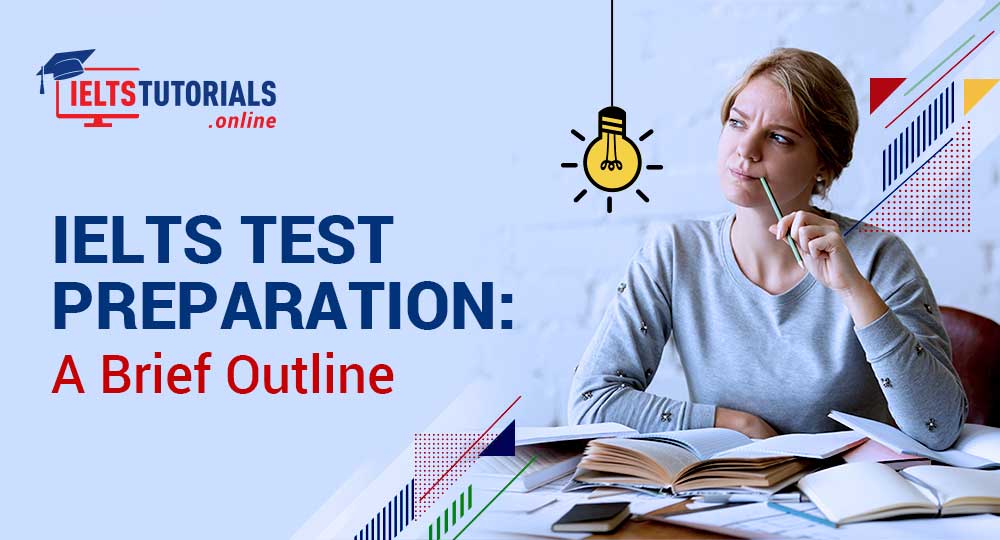
IELTS Test Preparation: A Brief Outline
Before we jump on to the preparation part of the IELTS exam, we would like to brief you about the IELTS exam. For students and the general public, it's just an exam which, if cleared with a good score, opens the locks to high - quality education, but for you, an exam - taker, we believe that you have a sound knowledge of the exam and the entire process. In this blog, we will throw some light on the preparation outline, as there plenty of online portals that already give IELTS preparation & training, practice tests, tips and lots more.
The International English Language Testing System (IELTS) exam which started in 1989 is today, a standardized test that measures the proficiency of English language of people who want to study or work in a country where the language of every - day communication is English. The IELTS test is a 9 - band scale test which identifies this level of proficiency; the ability to read, write, listen & speak in English. Besides, you have a band - score for each section you attempt.
The exam takes approximately 2 hours and 55 minutes to finish. Reading, Writing & Listening modules get tested in a sitting itself. The Speaking part, however, may be on the same day or might take a few days after the test is done.
A few countries which accept the IELTS score as means to study work or migrate are the United Kingdom, Ireland, New Zealand, Canada, Australia, United States*
*Around 3000 universities in the United States accept the IELTS score.
The IELTS exam has two categories
Academic & General Training and depending upon your need; you should choose which exam to take.
- IELTS - Academic: If you want to obtain a professional registration or enroll yourself in a college or university for undergraduate or postgraduate education, you should take the IELTS - Academic exam.
- IELTS - General Training: This test is for those people who wish to migrate to English - speaking countries for secondary or training programs, immigration purposes or to gain work experience.
Let us now understand the test format. As mentioned earlier,
IELTS exam has four modules:
- Reading Module
- Listening Module
- Writing Module
- Speaking Module (could be on the same day or a delayed date)
The listening test, as it goes, will have a varied range of native - English speaking accents: British, New Zealand, North - American, Canadian etc. Though the Listening and Speaking modules remain similar for Academic or General Training, the fundamental difference is in the Reading and Writing part.
The IELTS - Academic checks for language proficiency needed for an academic environment. However, the tests are very much doable and accessible to all IELTS test takers, no matter what they specialize in, the subject content is well within an understanding view.
On the other hand, the IELTS - General Training aims to check language proficiency in a practical, everyday context. These could include a setting based in a workplace, social event, etc.
Now then you know the history and the basic outline of the exam, let's start with a
basic understanding of the test format.
- Know what to expect on the test day. Familiarise yourself with the test format, types of questions, time allocated, marks allocation, etc. These are perhaps a few details, which should not just run in your veins; it should run in your blood!
- Even though it is a test to check your language proficiency level, have a clear cut idea about the question - types and the skills tested in them. As it is an all-around test, an improvement in one module could help in scoring marks in the other.
- Understand the content type and types of questions asked in each of the modules: Speaking, Reading, Listening & Writing. It will help you know what to write & most importantly, where to put your words & in which context.
The second stage & perhaps the most important stage is preparation & practice. This is probably the most crucial part. There have been instances where non - native English speakers have scored much higher bands than native speakers. It keeps the saying "Hard work beats talent if talent doesn't work hard", right?
Speaking of mock tests, IELTS Tutorials offers some of the best
IELTS exam preparation facilities. With
Online Coaching and in-class coaching and with broad access to a plethora of resources and plenty of tests, you cannot go wrong with your choice of selecting a place to prepare for the IELTS exam. Also, you can also avail writing & test evaluation services and choose the way you want to be coached - individual or in a group. Also, download the
IELTS Tutorials Exam Practice App to get 20+ FREE IELTS practice tests to test your level of preparation and to get higher marks in the IELTS exam.